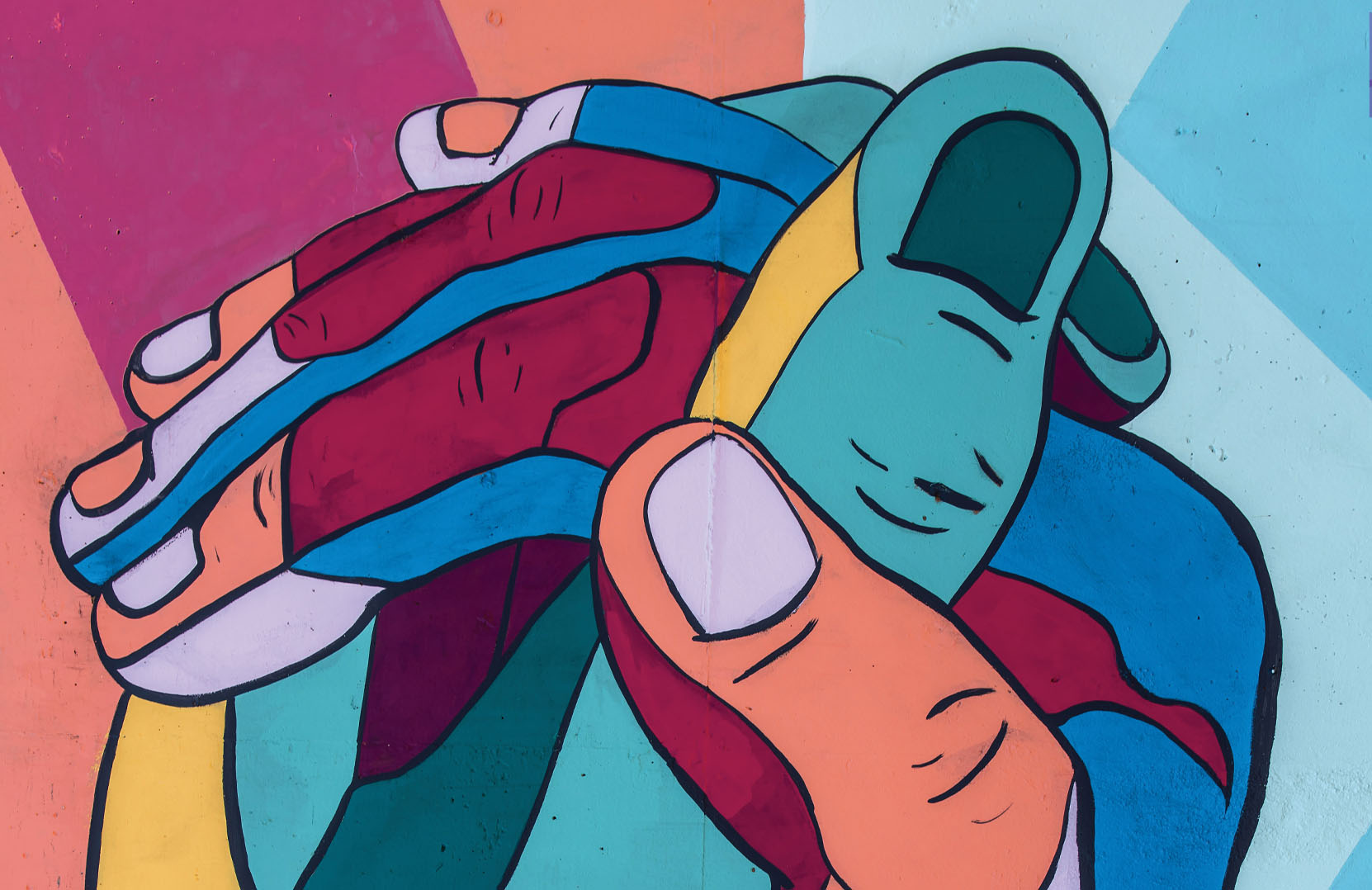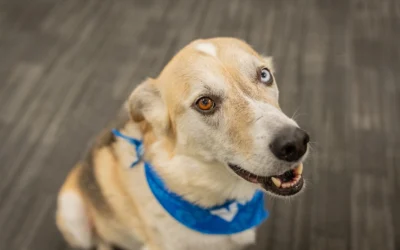Our society is at a pivotal point. Finally, inclusion and diversity are at the forefront of social justice movements, and harmful thought patterns that have been rampant for centuries are being dispelled.
At MacEwan University, promoting diversity and inclusion on campus has become a top priority. Over the past few decades, MacEwan has implemented supports and initiatives with the goal to help all students, including those with developmental disabilities, feel welcome and safe.
Inclusion Alberta at MacEwan supports students with developmental disabilities to have a normal student experience and helps them reach their educational and career goals.
“Inclusive education has been at MacEwan for 25 years as of last year,” says Darren Beach, coordinator of inclusive post-secondary education at MacEwan. “MacEwan was the first college at the time in Alberta to include students with developmental disabilities.”
At the core of Inclusion Alberta’s philosophy is that the students get an authentic university experience just like any of their peers.
Beach explains that “(Inclusion Alberta’s) role is to support students with developmental disabilities to be fully included in the campus experience. This includes the academics and social activities — whether that’s being involved in groups or clubs connecting classmates, getting involved in activities, or intramurals.”
Another way that Inclusion Alberta supports students is by helping them find part-time employment while in school. Some of the students already have jobs, but many of them need help finding something that they enjoy.
Beach says, “as the students approach the end of their studies, (we) also support them with finding long-term employment that ideally aligns with their field of study that they are in.”
Typically students who use the support of Inclusion Alberta will start meeting with a facilitator the summer before they begin classes to develop a relationship and familiarize the facilitator with the student’s educational and career goals.
During the school year, Beach says, “the facilitators meet with students on a regular basis to support them with whatever work they’re doing in their courses, making sure they are staying on top of their assignments, and helping them think of activities they may want to get involved in.”
Beach continues, “the facilitators also help with coordinating inclusive employment. So supporting employers to really… understand what that looks like and the benefits of making sure they have a diverse workforce.”
Even though the facilitators play a big role in the lives of the students who use the support, they still try to stay in the background as much as possible to ensure that students get the most authentic university experience.
Beach says, “When we’re talking to instructors and classmates we always make sure we’re very careful about our language. So for example (we say) ‘your classmate’ or ‘your student in your classroom.’ They’re not our students — they don’t belong to Inclusion Alberta. They are MacEwan students first and foremost, and we happen to support them.”
An important part of making the university more inclusive is working with professors and other students to create an inclusive space.
One professor who has really surpassed the standard is Dr. Katie Biittner, an assistant professor in the anthropology department. There are many ways that she tries to make her classroom an inclusive space.
She says, “First, I design my courses using Universal Design for Learning principles. These help me anticipate in advance… some of the various learning challenges students might face in my courses and remove any barriers to their learning when possible.” She continues, “for example, I ask myself, ‘would a student who is colour blind be able to see the labels I’ve used in this diagram?’ then look at how I can use different colours or even patterns that will make that image accessible to any sighted person, and write up metadata descriptions for those with other vision impairments. If barriers cannot be removed, I try
to build in as much flexibility and redundancies as possible so that individuals do not need to ask for a specific accommodation.”
She even gives students in some courses a “choose-your-own-adventure” syllabus which gives students the flexibility to choose the assignments that will play to their strengths.
A big reason why Biittner goes the extra mile is because she has faced struggles in her own academic and professional journeys because she identifies with quite a few minority groups.
She says, “I speak openly about… the marginalized groups I am a member of; I am open about being bisexual, polyamorous and having anxiety, depression, and ‘invisible’ disabilities.” She also always uses her pronouns and encourages students to do the same to make sure everyone feels comfortable.
Because of her work with students with developmental disabilities, she says, “I’ve grown so much as an educator. Not only because it’s helped expose me to different kinds of learners and pushed me to reimagine my course content and how I assess students constantly, but it’s most importantly increased the diversity of my classroom.”
Of course, students also play a vital role in making MacEwan into an inclusive campus. Biittner explains that the best way for students to take action and make everyone feel included is to “talk to each other.” She says, “simple acknowledgements like saying hello or greeting familiar faces or masks, in the classroom go a long way to creating a space where we can learn and work together.” For online classes, she encourages all students to put a photo of themselves on the avatar and put their pronouns behind their names.
All students need to “see the benefits and value of having a diverse classroom, club spaces, and employment settings,” says Beach. “We don’t want to set the students we support apart from other students; we want them to be recognized as a peer, as other students.”
Sydney Verkerk is a student at MacEwan University going into her second year of a bachelor of communications degree. Inclusion Alberta has supported her throughout the last year and a half.
Verkerk says that “Inclusion Alberta helped me a lot because I’m really shy and I don’t talk to people as much, but now I’m starting to talk to people in the class.”
She likes school but says that “at times it gets a bit nerve-racking knowing that (I) have quizzes and assignments.” She works with her facilitator a few times a week to get input on assignments and papers. Verkerk also volunteers at the griff and works on writing captions and making graphics for social media with the facilitator.
Verkerk currently works at Rogers Place and has a goal to be a social media coordinator for the Oilers and eventually for Oilers TV.
Inclusion Alberta supports 15 students at a time at MacEwan, and there are many students who have found both summer and full-time dream jobs in their discipline.
Beach says, “a student that we support in physical education secured a full-time summer job at Banff National Park, and another student worked for the City during the summer with the green shack program. There are some really good stories around students achieving some of the goals that they have.”
Inclusion Alberta has also recently made some inroads with faculties that previously hadn’t had any students supported by Inclusion Alberta, like the faculty of nursing and the faculty of music.
However, the work is far from done. Beach says, “I’m not saying all spaces in the MacEwan community are inclusive, but we have seen some good stuff happening.”
Biittner adds that “we have all learned untruths and misinformation in our lives, and coming down hard on each other only serves to shut people down, but won’t help them identify the problem with what they said nor encourage them to learn otherwise.”
There is still a ways to go, as for centuries, the norm was to isolate anyone who was “different” in any way. However, progress is being made, and MacEwan remains a front runner in the province for pushing diversity and inclusion initiatives and being welcoming to all.
Inclusion Alberta is a great resource for students who need the extra support to reach maximum success, but it is the students who are achieving great things and becoming who they want to be.
All students contribute to a colourful and inclusive campus, and every one is essential to make the MacEwan student population what it is.





0 Comments